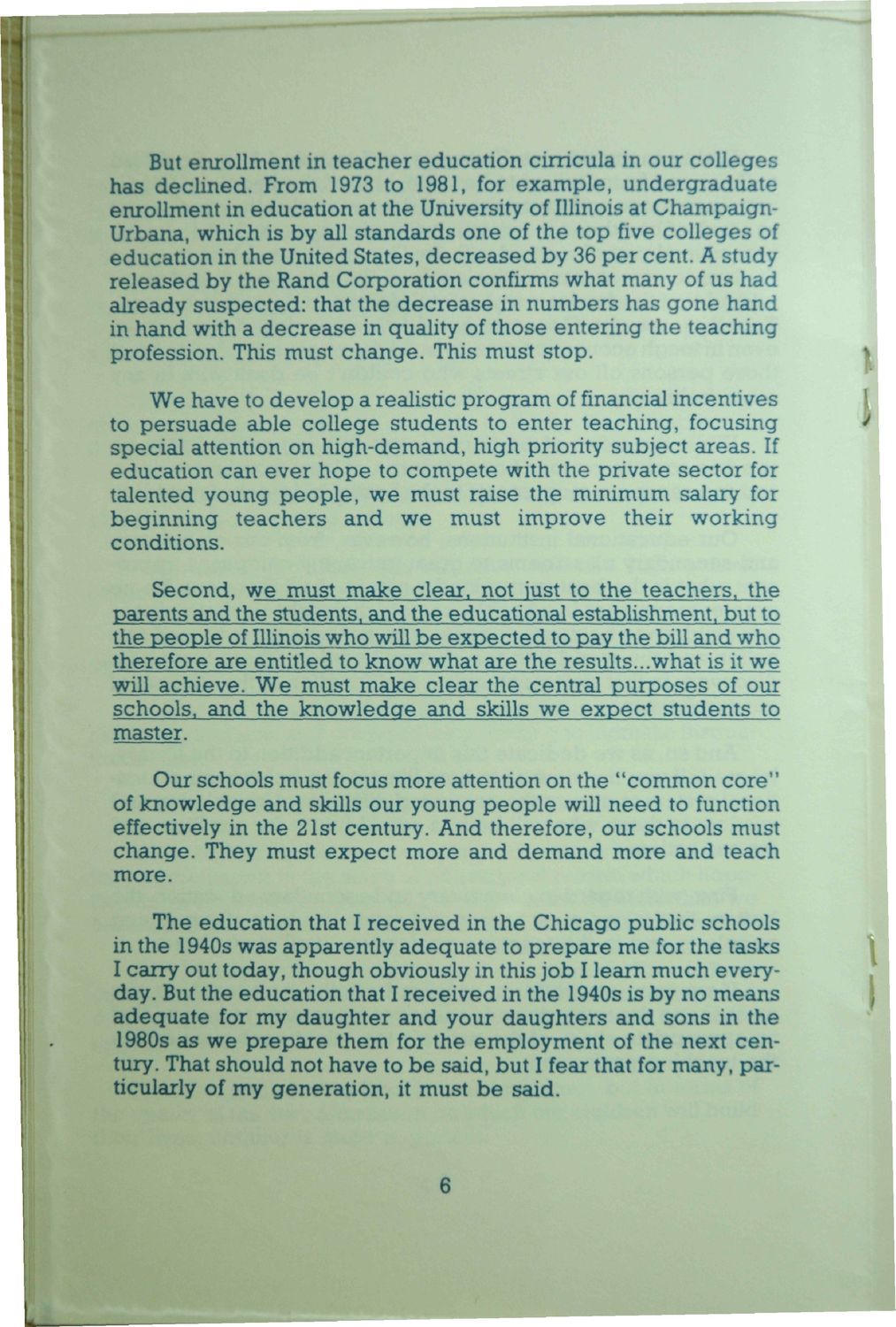| |
| |
Caption: Dedication - Library Sixth Stack
This is a reduced-resolution page image for fast online browsing.

EXTRACTED TEXT FROM PAGE:
But enrollment in teacher education cimcula in our colleges has declined. From 1973 to 1981, for example, undergraduate enrollment in education at the University of Illinois at ChampaignUrbana, which is by all standards one of the top five colleges of education in the United States, decreased by 36 per cent. A study released by the Rand Corporation confirms what many of us had already suspected: that the decrease in numbers has gone hand in hand with a decrease in quality of those entering the teaching profession. This must change. This must stop. We have to develop a realistic program of financial incentives to persuade able college students to enter teaching, focusing special attention on high-demand, high priority subject areas. If education can ever hope to compete with the private sector for talented young people, we must raise the minimum salary for beginning teachers and we must improve their working conditions. Second, we must make clear, not just to the teachers, the parents and the students, and the educational establishment, but to the people of Illinois who will be expected to pay the bill and who therefore are entitled to know what are the results...what is it we will achieve. We must make clear the central purposes of our schools, and the knowledge and skills we expect students to master. Our schools must focus more attention on the "common core" of knowledge and skills our young people will need to function effectively in the 21st century. And therefore, our schools must change. They must expect more and demand more and teach more. The education that I received in the Chicago public schools in the 1940s was apparently adequate to prepare me for the tasks I carry out today, though obviously in this job I learn much everyday. But the education that I received in the 1940s is by no means adequate for my daughter and your daughters and sons in the 1980s as we prepare them for the employment of the next century. That should not have to be said, but I fear that for many, particularly of my generation, it must be said. 6
| |